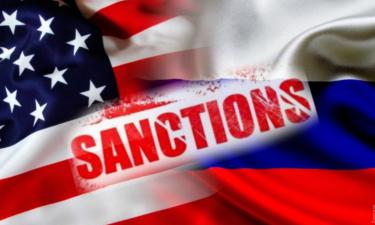Islamic militant Hamas' landslide victory in Palestinian elections unnerves world
Islamic militant Hamas' landslide victory in Palestinian elections unnerved the world, darkening prospects for Mideast peace and ending four decades of rule by the corruption-riddled Fatah Party. The parliamentary victory Thursday stunned even Hamas leaders, who mounted a well-organized campaign but have no experience in government. They offered to share power with President Mahmoud Abbas, the Fatah chief, who said he may go around the new government to talk peace with Israel.
Underscoring the tensions between the secular Fatah and fundamentalist Hamas, some 3,000 supporters of the militant group marched through Ramallah and raised their party's green flag over the Palestinian parliament. Fatah supporters tried to lower the banner. The two sides fought for about 30 minutes, throwing stones and breaking windows in the building.
Abbas, who was elected last year to a four-year term as president of the Palestinian Authority, has yet to decide how closely to work with a group that built its clout through suicide bombings. But his Fatah Party decided not to join a Hamas government, Fatah legislator Saab Erekat said.
"We will be a loyal opposition and rebuild the party," Erekat said after meeting with Abbas. Hamas won a clear majority in Wednesday's vote, capturing 76 of the 132 seats in parliament, according to official, near-complete results released Thursday. The results of the popular vote were not announced.
Four independent candidates backed by Hamas also won seats. Fatah, which has dominated Palestinian political life since the 1960s but alienated voters because of rampant corruption, got 43 seats. The remaining went to smaller parties.
Palestinians across the Gaza Strip and West Bank greeted the election results with joy, setting off fireworks and firing rifles in the air. But leaders across the world demanded that Hamas, which is branded a terror group by the U.S. and European Union, renounce violence and recognize Israel. "If your platform is the destruction of Israel, it means you're not a partner in peace, and we're interested in peace," U.S. President George W. Bush said in Washington.
Acting Israeli Prime Minister Ehud Olmert said Israel will not negotiate with a Palestinian government that includes Hamas members, and senior Cabinet officials held an emergency meeting to discuss the repercussions of the vote. Acting Foreign Minister Tzipi Livni asked the EU not to deal with a "terror government."
Hamas leaders immediately took to the international, and even Israeli, airwaves to send out a moderate message.
"Don't be afraid," Ismail Haniyeh, a Hamas leader, told the BBC. Mahmoud Zahar, another Hamas leader, said the group would extend its year-old truce if Israel reciprocates. "If not, then I think we will have no option but to protect our people and our land," he said. At a victory news conference late Thursday, however, Haniyeh said Hamas will "complete the liberation of other parts of Palestine." He did not say which territories he was referring to or how he would go about it.
Hamas has largely adhered to the cease-fire declared last February, while a smaller militant group, Islamic Jihad, carried out six suicide bombings against Israelis during that period.
Abbas said he remained committed to peace talks and suggested they be conducted through the Palestine Liberation Organization rather than the Palestinian Authority. That could help him sidestep a Hamas-run government in peace talks.
"I am committed to implementing the program on which you elected me a year ago," he said in a televised speech. "It is a program based on negotiations and peaceful settlement with Israel."
Prime Minister Ahmed Qureia and his Cabinet resigned to make room for a Hamas-led government. The Islamic group quickly reached out to Abbas to try to work out a partnership, Haniyeh said, adding that he did not expect the Palestinian leader to resign.
Hamas leaders had said before the vote they would be content to be a junior partner in the next government. The group campaigned mainly on cleaning up the Palestinian Authority, downplaying the conflict with Israel, and Zahar said Thursday that Hamas planned to overhaul the government.
"We are going to change every aspect, as regards the economy, as regards industry, as regards agriculture, as regards social aid, as regards health, administration, education," he said. Some experts believed the Hamas victory would force it to moderate. Others feared it would embolden the group to remake Palestinian life in keeping with its strict interpretation of Islam.
"We don't want the Palestinian people and cause to be isolated. We don't want a theocracy," said independent lawmaker Hanan Ashrawi. "Hamas promises reform, sure they will do that, I would like to see reform. But what worries me is things like legislation on education, culture, social welfare, the ramifications for peace in the future, reports the AP. I.L.
Subscribe to Pravda.Ru Telegram channel, Facebook, RSS!





